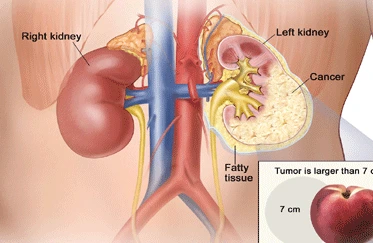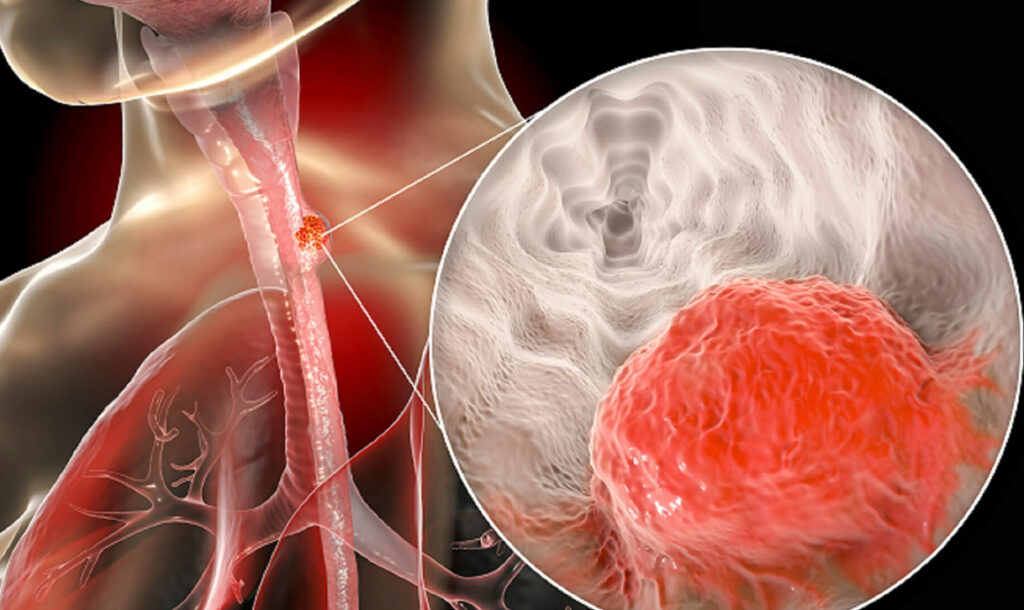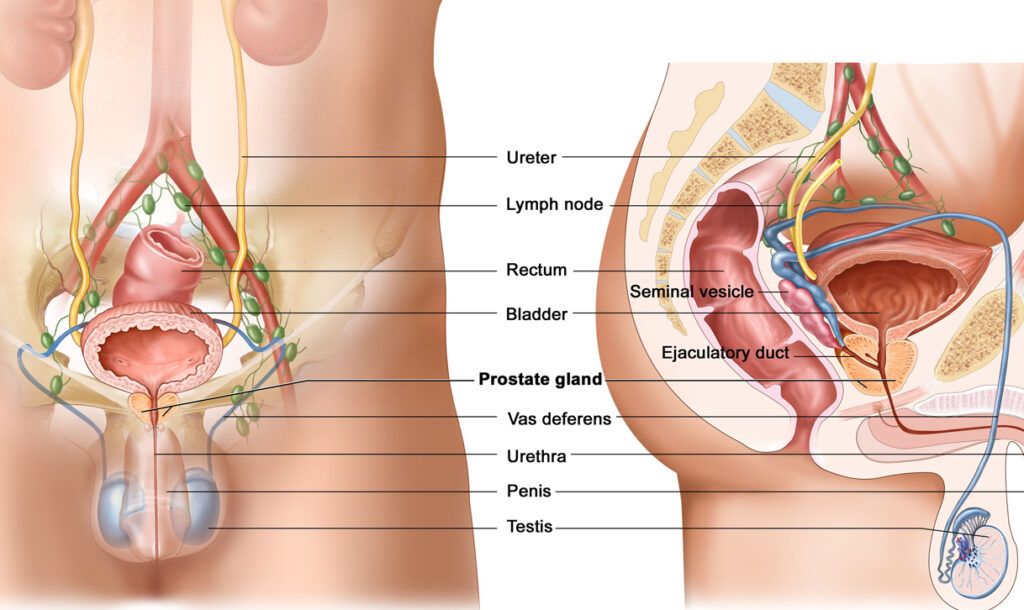Renal cell carcinoma (RCC) is also known as hypernephroma, renal adenocarcinoma, or renal or kidney cancer.
Organic Fagonia cretica is used in different mixing combinations of Renal Cell Cancer because for any patients with early diagnosis, leaf / flower / stem are of equal proportions in the herbal formulation, while for stage 4 / terminal cases, intake of Flower has to be increased uptil 90-95 %. We hereby request you to share illness details to us through email (AsmiConsultancyHerbals@gmail.com) or through clicking the WhatsApp icon on this page below and we shall get back to you with our detailed analysis on the prescription / dosage. For each type / stage / origin of carcinoma, different mixing proportions with regards Organic Fagonia cretica (Leaf : Flower : Stem) are used so we can achieve maximum medicinal potency and the successful probability towards attaining a successful remission is higher.
What is renal cell carcinoma?
Renal cell carcinoma (RCC) is also known as hypernephroma, renal adenocarcinoma, or renal or kidney cancer. It’s the most popular type of kidney cancer found in adults rather than children.
The kidneys are organs in living body that assist get rid of waste while also regulating fluid balance. There are small tubes inside the kidneys called tubules. These assist in filter the blood, aid in excreting waste, and help extraction of urine. RCC happens when cancer cells begin growing out of control in the lining of the tubules of the kidney.
RCC is an aggressive cancer and frequently travels to the lungs and surrounding organs.
What leads to renal cell carcinoma ?
Medical experts are unaware of the exact cause of RCC. It generally found in men in the age limit between 50 and 70 but can be diagnosed in anyone.
There are few risk factors for the disease, including:
– bloodline of RCC
– dialysis treatment
– hypertension
– plumpness
– smoking cigarettes
– polycystic kidney disease (an inherited disorder that forms cysts to form in the kidneys)
– the genetic condition Von Hippel-Lindau disease (characterized by cysts and tumors in other organs)
– chronic abuse of certain prescribed and over-the-counter medications such as nonsteroidal anti-inflammatory drugs used to diagnose arthritis, and cure for fever and pain relief like acetaminophen
Symptoms of renal cell carcinoma
When RCC is in its initial stages, patients may feel symptom-free. As the disease grows, symptoms may consist:
– a lump in the abdomen
– blood in the urine
– uncertain weight loss
– reduction of appetite
– tiredness
– vision problems
– continue pain in the side
– Heavy hair growth (in women)
How is renal cell carcinoma diagnosed ?
If your doctor surmises that you may have RCC, they’ll want to know about your personal and ancestor medical history. They’ll then run you under a physical exam. Findings that can points RCC include swelling or lumps in the abdomen, or, in men, enlarged veins in the scrotal sac (varicocele).
If RCC is accused, your doctor will advice number of tests to get the precise diagnosis. These may consist:
– complete blood count — a blood test conducted by taking blood sample from your arm and forwarding it to a lab for evaluation
– CT scan — an imaging test that tells your doctor to watch at your kidneys to detect any abnormal growth
– abdominal and kidney ultrasounds — a test from sound waves to draw a picture of your organs, allowing your doctor to find for tumors and problems within the abdomen
– urine examination — tests used to find blood in the urine and to examine cells in the urine looking for proof of cancer
– biopsy — the withdrawal of a small piece of kidney tissue, done by drive a needle into the tumor and taking out a tissue sample, which is then forwarded to a pathology lab to rule out or verification the presence of cancer
If you are accused to have RCC, additional tests will be done to search out if and where the cancer has travelled. This is known as staging. RCC is phase from stage 1 to stage 4, in order of ascending criticality. Staging tests can consist a bone scan, PET scan, and chest X-ray.
Approximately one-third of individuals with RCC suffer from cancer that has travelled at the time of diagnosis.
DIETARY REGIMEN recommended for Patients with Renal Cell Carcinoma
Although there isn’t a particular diet for people surviving with kidney cancer, good eating habits are important to maintaining a healthy body and command side effects of cancer treatment.
If you’re suffering with kidney cancer, your diet could impact how you feel on a day-to-day routine. Look out which foods you should eat more of, which foods you should ignore, and what dietary differences to expect during therapy.
What to eat
Eating a healthy, balanced diet is vital for everyone having kidney cancer.
Your nutritional requirement depends on what type of nursing you’re on and the cancer stage. But there are some foods you should make an attempt to include in all of your meals:
– Fruits and vegetables
Fruits and vegetables are high in soluble fiber and a common source of many required vitamins and minerals. They also help to lower the cholesterol levels and reduce your blood sugar. You should aim to eat between 5 and 10 servings of fruits and vegetables from a different variety available.
– Whole grains and starches
Whole wheat bread, wild rice, and whole wheat pasta are the popular source of energy. They’re also high in fiber, iron, and B vitamins.
Some whole grains are rich in phosphorus and potassium. Both of these can create problems if you are at high doses of them while your kidneys aren’t healthy. So, it’s important to check with your doctor about which whole grain foods may be more suitable in your diet.
– Proteins
Proteins are a important part of everyone’s diet, as they assist to develop and maintain muscle mass. But protein rich diet for someone with kidney cancer can develop a buildup of food-derived waste in the bloodstream. This create symptoms like fatigue, nausea, and headache.
What to avoid
Several foods can aggravate your risk of kidney-related difficulties. Eat these foods in moderation or avoid them completely:
– Foods that are rich in salt
Salt can cause the fluid imbalance in your body and causes to high blood pressure. This can make any mislaying of kidney function worse.
– Processed foods are mainly high in sodium, so it’s majorly to avoid:
Junk Food
preserved food
salty snacks
deli meats
Whenever possible, use herbs and spices for flavoring as replacement of salt. However, if you’re using exotic herbs, consult with your healthcare source.
– Foods high in phosphorous
Phosphorous is a chemical element important for preserving bone strength. But in people having kidney cancer, it may build up inside your bloodstream and give you the symptoms like itchiness and joint ache.
If you’re struggling with these symptoms, you may want to lower your intake of high-phosphorus eatables like:
seeds
nuts
beans
processed bran cereals
– Too much water
Overhydrating may also cause problems for patients with kidney cancer. Having reduced kidney function can bargain your urine production and cause your body to maintain too much fluid.
It’s necessary for everyone to drink plenty of water, but make an attempt to monitor your intake of fluids so you’re not intaking an uncontrolled amount.
During treatment important dos and donts to be followed
It’s very popular to lose weight during therapy for kidney cancer. You may look that your taste for most of the foods has changed. Things that used to appeal to you not anymore be appetizing and may even make cause nauseous.
Use trial and error to find a few go-to foods that don’t let you sick. Focus on eating them when a wave of nausea occurs.
Even if you are not feeling particularly hungry, try your best to eat regular meals so that your energy levels not degrades throughout the day. If you facing trouble eating full-sized section, it may cause to break up your meals into five or six smaller sections rather than of the typical two or three large sizes.
Cancer treatment could weaken your immune system and make you more susceptible to contamination. Take extra measures while preparing and preserving your meals.
Wash your produce thoroughly, and make sure that foods like meat, poultry, and eggs are cooked well and hygienically. Steer clear of raw foods like sushi, shellfish, and vegetable sprouts, and avoid drinking unpasteurized milk or juice and any other liquid food.




